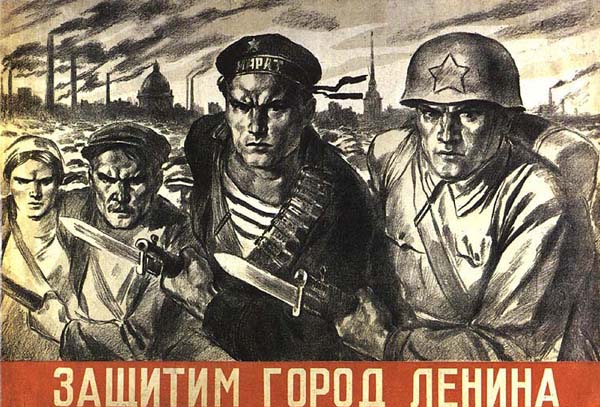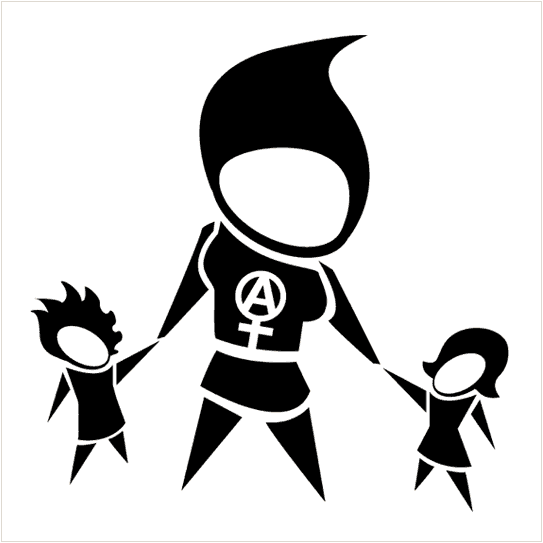|
|||||||||||||
Anarcho-Syndicalism versus Vol. 2: On Organizing the
Post #01
Thanks for taking the time to write this, Nando and Andy. I just don't see how the latter's conception is at all realistic. This world is faced with some incredibly burning issues and complex contradictions that will need to be solved under a revolutionary society. How can we do that if there isn't concerted and organized social planning at all levels? How can we eliminate hunger around the world without direction, leadership, and centralism? This world has pressing needs and a revolutionary state, with a military, prisons,court system, and intact state system that furthers social transformations is needed. Unfortunately, Andy, an actual socialist society has actual contradictions that simply can't be solved through autonomous worker's councils. Matters dealing with foreign policy, national security, illiteracy, political movements, etc…how, Andy, can we reach a classless, stateless society (taking into account all the burning contradictions) by means of autonomous workers councils? I think Andy's view is also a bit narrow, focusing on individual workplaces and neighborhoods as examples. As far as the paved road goes, whatever. What if a majority of people wanted schools to preach intelligent design to its students? Would your syndicalist society allow it, since that is the "democratic" way of doing it? See, these sort of decisions must be made on a society-wide level that takes into account all the important elements and the well-being of the people as a whole. Of course, the input at all levels (individual, local, regional, national, etc) will be needed and required in order to make the best decisions possible. Once you have factories competing for resources, markets, and profits under socialism (even if working people control that), you are objectively reproducing capitalist social relations. Social production under socialism must be first and foremost in the service of socialist transformation. There really is a world of difference between knowing you're a worker and being a communist, ideologically speaking. One view says that since you know you're a worker, you understand class oppression and thus the need for revolution. I think it meddles a lot in identity politics in that it reifies working people not because they make up the class that can finally eliminate all forms of oppression and exploitation…but simply because they are workers and oppressed. We need to train people to become emancipators of humanity, not liberators of this or that workplace or neighborhood or region or whatever.
Post #02
Greetings, Vivid Visionary,
Both methods have been tried, so there's no need to philosophize about it. Centralized leadership in China, Vietnam, Cuba, or Laos, all have been inspired by Marx's right ideas, but they've done virtually nothing in the elimination of poverty. Furthermore, anarchist societies were actually able to destroy things like hunger, homelessness, and poverty. According to the pamphlet, "Syndicalists in the Russian Revolution," by G.P. Maximoff, autonomous workers' councils seized capitalist housing and gave them to the people. What was the reaction of the Bolshevik Party? They combated socialization of industries and housing with every fiber of their being. Similarly, we find the exact same thing in the Spanish Civil War: Bolsheviks and Leninists arrested and executed workers who engaged in seizing Capitalist industries. My dear, friend… Do you feel more comfortable when you don't own your world, but someone else does and they're looking out for you? If that's the case, just stick to State Capitalism! You're revolting because you want someone to be on top of you, and to use you for your own liberation? The Capitalist talks about looking out for you more than the Communist Party, they both are the biggest owners of the means of production, and they have an equal history of exploitation and brutality. How can we eliminate hunger around the world without leadership? We've had Marxist leadership for nearly a century, and I don't see world hunger coming to a close!!! You can argue against the facts all you want — I don't, because I want the truth.
Social transformations have never been accomplished by the state, and I'd beg you to point to one single incident where they have. The Civil Rights Bill in the United States, this was purchased with the blood of our families and friends in the streets. No senator or congressman used racial equality to get into office, none of them could ratify equality, and no president ever vetoed oppression. Civil Rights, as it exists in America, came about from Martin Luther King and his sacrifices. In France, much of it is owed to Dreyfuss. In Ireland, liberty was brought about not by decrees or ordinances or legislation — it required suffering by the people. India was liberated from Britain not by the Communist Party, but from those who went on strike, demonstrated, and suffered for it. You ask me how are we going to reach a classless, stateless society? My friend, the only time we have taken a step towards classlessness, or statelessness, was from the people fighting for it! Slavers didn't liberate slaves, as Capitalists will not liberate workers; that's even if the Capitalist calls themselves the Communist Party Chairman. From General Strikes to demonstrations to protests, this is where our freedom comes from — every single last bit of it. These ambitions and desires for liberty are an objective light leading us into this new world. But the path towards the abolishment of class, nation, and state is not through the political party, it is through autonomous, cooperative, and voluntary social forces. I cannot conceive that leadership or the state has ever liberated the people, and yet you seem fairly convinced that this must be the case. Why why why? If your experiment has failed every time when thrown into the laboratory of history, what makes you think it'll turn out different next time? Quoting Mikhail Bakunin…
The slogan of the First Internationale was "The emancipation of the toilers must be the work of the toilers themselves." And yet, Marx dropped this when he expelled other Socialists from the group. [*2] His sympathy was certainly not in favor of the workers, as he lived off of Capitalism, enjoying upper class luxury [*3] and even sexually assaulting one of his maids. [*4] Bakunin, on the other hand, traveled through Spain, Germany, France, Italy, and Switzerland, stirring up revolution everywhere he went — participating in the revolution that brought about the Paris Commune, as well as overthrowing the Spanish Monarchy. Of course, the Spanish Monarchy was restored. How, you ask? Marx told his Internationale to vote for a Republican Socialist as the only means to maintain Spain as a nation with self-determination. Upon gaining office, the "Republican Socialist" handed Spain right on over to the old Monarchy. Anarchists tear down a monarchist system, and Marxists get right to work at putting it back up. [*5] Marx's prediction about walking into liberty failed. The state never created liberty before Marx, during Marx, or after. Why continue to use Marxism as a guide for Revolution and overthrowing Capitalism?
The Anarchist union membership in Catalonia was between two and three million. [*6] Whether you look at the Shinmin Autonomous Region, or the Paris Commune, [*7] or the Free Territory in the Ukraine, [*8] you are looking at large numbers. Of course, the analogy I drew out, of paving the road, would equally apply between autonomous cities, regions, nations, etc.. The type of relationship between one or two people doing something together would still exist, even between millions of people. Workers in Asturias, Zaragoza, Barcelona, Valencia, the Basque country, Castille — we each have the same interests, in preserving our communities, in working to feed ourselves and build our society, and in resisting authority, whether it is born in a politician or a Capitalist. If two people can work together on constructing a road, what makes you think that… a university wouldn't want an exchange program with a university in another county? If multiple regions share the same cultural and social regions, why wouldn't they endeavor in a shared defense program, and a shared technological development program for defense? There is an interest in both parties exchanging to continue the relationship, and it is their ability to end the relationship at any time, that guarantees the good faith of their partner. If it was top-down, like Authoritarian Socialism, then once you entered the agreement, you can't back out. Once you can't back out, there is nothing to hold back your master from exploiting and oppressing you as much as they please. A river that runs through important areas of ecology, through industrial parts of cities, and provides water for multiple irrigation systems. Every workers' union, from every industrial association, in those affected regions is going to have an interest in how to maintain this shared resource. So that is what brings us together, in a shared organization to accomplish a shared objective. But it is only our ability to withdraw, to strike, boycott, and demonstrate, that promises us that the other party will not betray our trust. Otherwise, if they could do whatever they want as an authority, what would stop them? Quoting Jean Jacques Rousseau...
Andy Carloff, Resources *1. "Marxism, Freedom, and the State," by Mikhail Bakunin, chapter 3.
|





